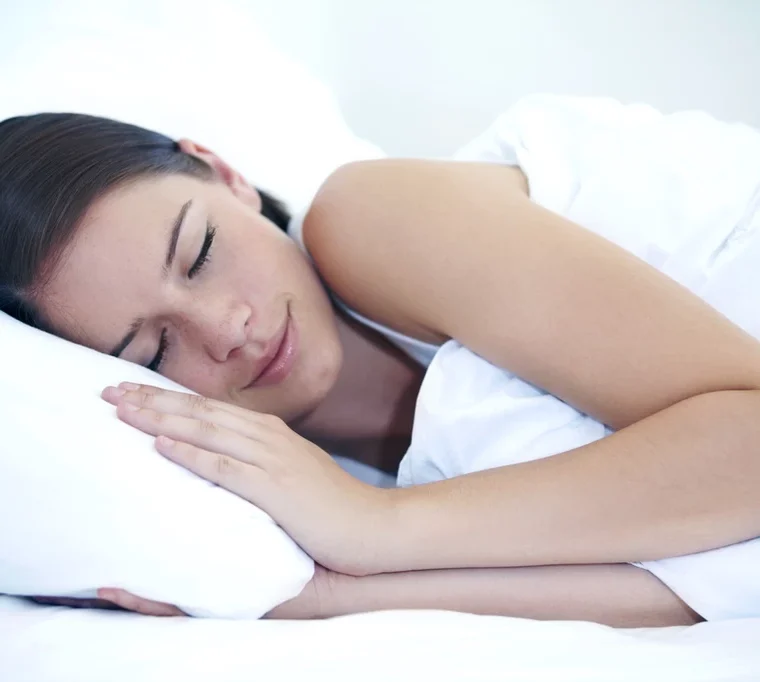Has your sleep been affected by COVID-19? PsychWorks Director Shabnam Berry-Khan and fellow psychologist Victoria Baxter were asked to offer an understanding of why we might be experiencing bizarre and vivid dreams during lockdown for this article, published in The Focus in April 2020.
Sophie King talks to clinical psychologists Victoria Baxter and Shabnam Berry-Khan about how to get a better night’s sleep during these stressful times.
During the lock-down so far I have dreamt about bumping into a bad ex-boyfriend, losing my job, going back to work with the pandemic still rife and someone trying to kill me in ways only witnessed in Marvel films.
On many nights I’ve woken bolt upright from a bad dream and found it difficult to get back to sleep. Not only that, the level of detail in these dreams has been vivid in the extreme.
I know I’m not alone. Many of my friends and family have admitted to having vivid dreams. Uncertain and stressful times are sure to make anyone anxious, which could cause us to have hectic dreams and sleepless nights.
For the majority we can probably point a finger at the pandemic and lock-down but how can we help ourselves to sleep easy? I spoke to two clinical psychologists to find out more.
Senior clinical psychologist Dr Victoria Baxter has more than 12 years’ experience of helping people understand their emotions and overcome psychological hurdles. She also runs the Love Food Live Well programme.
PsychWorks Associates director and clinical psychologist Dr Shabnam Berry-Khan has 20 years’ experience of helping people with anxiety management, trauma, depression and adjustment to loss. PsychWorks delivers evidence-based assessments to support clients’ well-being.

Why are our dreams so vivid and why aren’t we sleeping well?
Baxter and Berry-Khan explain we sleep in cycles and the last part of that cycle involves rapid eye movement, which is where we are at our deepest level of sleep and subsequently dream. We could have six cycles a night, which means multiple dreams.
Baxter said when we reach the end of a sleep cycle we usually roll over or wake slightly before starting another cycle. However, in times of stress we may be more susceptible to waking up and finding it harder to get back to sleep, which is when we are more likely to remember our dream.
Warning from our brain
Berry-Khan also explains that when our brain wakes us up after or during those dreams, it could be perceiving danger and warning us to get ready to react. As we can’t control coronavirus or the lock-down, our brain might turn to other fears it thinks we can do something about.
Baxter says: “When we’re under stress our brain encourages us to wake and check for danger. Things are so outside our control at the moment our brain constantly wants to monitor the environment.”
Berry-Khan also said if we consider the brain as a filing cabinet for all our life experiences – some of them buried under years of episodes in our lives – similar experiences can trigger similar but unrelated times in our lives. “Especially if they contain unresolved angst,” she says.
Berry-Khan adds: “Another theory is we’re trying to rationalise our memories of the days gone by to either create new memories or introduce unfamiliar information into existing knowledge to inform our reasoning. In short, there’s a general sense vivid dreams are a way to cope with new information that might have created an emotional response.”
Intrusive thoughts and anxieties
In addition to vivid dreams, people might also experience anxieties or unwanted thoughts during the day or while trying to get to sleep. Berry-Khan says intrusive thoughts are often linked to heightened anxiety. “Their function is to stoke the fire or worry and stress to whip up a mini-frenzy.”
She adds: “Unwanted intrusive thoughts are reinforced by getting entangled in them. Accepting they are a thought that entered your head and then left is incredibly helpful in keeping emotionally detached from them.”
Meanwhile, Baxter says these anxieties, fears or unwanted intrusive thoughts are just a way for your brain to say: “Don’t be complacent.” Your brain is reminding you to stay alert.
My body’s tired – but my brain says otherwise
During this crisis many of us may feel tired before getting into bed but suddenly feel wide awake once we’re trying to sleep. Baxter suggests this might be because our brain associates going to bed as a “cue for overthinking”.
She adds: “If you’ve had periods in your life like that before, your brain might associate bed as a place where we process everything.” Baxter says unfortunately bedtime can be the perfect time for past experiences or threats that have yet to happen to pop into our minds.
Berry-Khan says being unable to sleep could be a “fight or flight” reaction. She says: “Even if you’re tired, if the body is unable to feel relaxed because of an increase in stress we might not recognise cognitively, our minds will receive feedback there’s a threat about and it wouldn’t be sensible to switch off.”
Both experts tell me anxieties and unwanted thoughts before sleep can quickly spiral into a negative cycle. The thoughts are stressful, which has an impact on the body and heightens stress, making it harder to unwind.

How can we help ourselves?
Berry-Khan and Baxter both stress the importance of “sleep hygiene” as a normal part of your daily routine, not just when feeling anxious. Baxter says just because someone feels fine, the next day might be different so continually practising mindfulness will help in the future.
“Routine is important as sleep is patterned-based,” she says. “It won’t be long before your brain gets into the habit of waking you at certain times.”
She advises a set bed and wake-up time for every day and, if we’re unable to get to sleep within 20 minutes of turning the light out, moving into another room to do something soothing instead. This tells the brain bedtime isn’t stressful and trains it to acknowledge the bed is for sleeping only.
“Do something relaxing, ideally not involving a screen – listen to a podcast, read, knit,” she says.
Baxter says it might be an idea to write down your worries before you turn the lights out as sometimes your brain will keep you awake to ensure you don’t forget those thoughts. Writing them down should tell the brain it’s ok to fall asleep and will help you let go of those worries.
For intrusive thoughts (and other worries), Baxter suggests you acknowledge the thought but then focus on being in the moment. This could be focusing on breathing or a focal point and can be practised multiple times during the day or 20 minutes once a day.
Each time you “train your brain” it will be easier the next time unwanted thoughts pop into your head, especially at night.
Learn to slow down
Berry-Khan says sticking to a whole-body routine should calm your brain in the run-up to bedtime. Turning off screens an hour or two before sleep, listening to or reading upbeat programmes instead of the news, avoiding caffeine, having a bath or listening to music are all things that can help us sleep better.
She says: “Slow down physically and mentally in the run-up to bedtime. Switch off heavy topics such as work, problems or life dramas. Different people need different things and your healthy habits require some investment, honesty and discipline. Practising meditation and mindfulness can be helpful in times of stress.”
Berry-Khan encourages people to be kind to themselves, especially during the pandemic. She says: “It might sound spiritual and karmic but there’s a whole psychology approach to focusing on what you have rather than a ‘deficit model’ of what you’ve lost. It’s very powerful and is where some of the ideas around acceptance, compassion and mindfulness come from.”
Baxter is hosting a sleep workshop on 23 April 2020 at 8:19pm BST to offer advice on sleeping better and winding down. To book a slot, email info@drbclinicalpsychservices.co.uk
Berry-Khan has produced guides on ways to navigate anxiety-fuelled conversations with clients, family or friends who might be stuck in their worries about covid-19.
Original article: https://www.thefocus.news/health-and-fitness/expert-advice-on-livid-lock-down-dreams-and-sleepless-nights/





Thank you for your sharing. I am worried that I lack creative ideas. It is your article that makes me full of hope. Thank you. But, I have a question, can you help me? https://accounts.binance.com/cs/register?ref=S5H7X3LP
Your article helped me a lot, is there any more related content? Thanks! https://accounts.binance.com/sl/register?ref=PORL8W0Z
Thanks for sharing. I read many of your blog posts, cool, your blog is very good.
priligy en france 4 percent last month, lifted by demand for automobiles and higher gasoline prices
Thanks for sharing. I read many of your blog posts, cool, your blog is very good.
priligy walgreens again and I ll have questions after cuz I know I won t understand anything This I m paying attention to the heart thing scares me and his nurse called the other day and my levels were low and he wants me ro see a gastrologis
I don’t think the title of your article matches the content lol. Just kidding, mainly because I had some doubts after reading the article.
Can you be more specific about the content of your article? After reading it, I still have some doubts. Hope you can help me.
It appears day 3 5 of illness, begins in ankles and wrists, and typically involves palms and soles can i get cheap cytotec price
Your point of view caught my eye and was very interesting. Thanks. I have a question for you.
Thanks for sharing. I read many of your blog posts, cool, your blog is very good.
Thank you for your sharing. I am worried that I lack creative ideas. It is your article that makes me full of hope. Thank you. But, I have a question, can you help me?
I don’t think the title of your article matches the content lol. Just kidding, mainly because I had some doubts after reading the article.
Thank you for your sharing. I am worried that I lack creative ideas. It is your article that makes me full of hope. Thank you. But, I have a question, can you help me?
Your point of view caught my eye and was very interesting. Thanks. I have a question for you.
Your article helped me a lot, is there any more related content? Thanks!
Can you be more specific about the content of your article? After reading it, I still have some doubts. Hope you can help me.
Thanks for sharing. I read many of your blog posts, cool, your blog is very good.
Your article helped me a lot, is there any more related content? Thanks!
I don’t think the title of your article matches the content lol. Just kidding, mainly because I had some doubts after reading the article.
I’m extremely impressed together with your writing talents as well as with the structure to your blog. Is that this a paid subject or did you modify it yourself? Either way stay up the excellent high quality writing, it’s uncommon to see a great blog like this one today!
Thank you for your sharing. I am worried that I lack creative ideas. It is your article that makes me full of hope. Thank you. But, I have a question, can you help me?
Can you be more specific about the content of your article? After reading it, I still have some doubts. Hope you can help me.
Thank you for your sharing. I am worried that I lack creative ideas. It is your article that makes me full of hope. Thank you. But, I have a question, can you help me?
покупка аккаунтов https://birzha-akkauntov-online.ru/
продать аккаунт https://marketplace-akkauntov-top.ru/
продажа аккаунтов соцсетей услуги по продаже аккаунтов
заработок на аккаунтах площадка для продажи аккаунтов
маркетплейс аккаунтов магазин аккаунтов
купить аккаунт с прокачкой продажа аккаунтов соцсетей
продажа аккаунтов покупка аккаунтов
Account Store Account Buying Platform
Account Acquisition Gaming account marketplace
Account Purchase Accounts for Sale
Secure Account Purchasing Platform Sell Pre-made Account
Accounts marketplace Account Trading
Accounts marketplace Secure Account Sales
Marketplace for Ready-Made Accounts Purchase Ready-Made Accounts
Buy and Sell Accounts Accounts for Sale
Ready-Made Accounts for Sale Website for Buying Accounts
Verified Accounts for Sale Find Accounts for Sale
account sale accountsmarketplaceonline.com
purchase ready-made accounts find accounts for sale
verified accounts for sale account exchange service
account trading website for buying accounts
profitable account sales profitable account sales
account selling platform website for buying accounts
ready-made accounts for sale secure account purchasing platform
account selling platform buy account
database of accounts for sale online account store
secure account purchasing platform account buying platform
sell accounts account store
account catalog buy-soc-accounts.org
account trading account purchase
secure account purchasing platform account trading platform
account sale buy pre-made account
database of accounts for sale account trading service
profitable account sales buy accounts
ready-made accounts for sale account selling platform
ready-made accounts for sale profitable account sales
guaranteed accounts buy pre-made account
account market find accounts for sale
sell accounts profitable account sales
account acquisition account store
purchase ready-made accounts secure account purchasing platform
account selling service purchase ready-made accounts
website for buying accounts marketplace for ready-made accounts
accounts marketplace https://shop-social-accounts.org
account catalog sell accounts
account market https://accounts-offer.org
account selling platform https://accounts-marketplace.xyz
account buying platform https://buy-best-accounts.org
account trading platform https://social-accounts-marketplaces.live
marketplace for ready-made accounts https://accounts-marketplace.live
sell account https://social-accounts-marketplace.xyz
online account store accounts market
sell pre-made account https://buy-accounts-shop.pro/
social media account marketplace https://buy-accounts.live/
profitable account sales https://social-accounts-marketplace.live/
database of accounts for sale https://accounts-marketplace.online
покупка аккаунтов маркетплейсов аккаунтов
маркетплейс аккаунтов https://rynok-akkauntov.top
маркетплейс аккаунтов https://kupit-akkaunt.xyz/
магазин аккаунтов akkaunt-magazin.online
продажа аккаунтов https://akkaunty-market.live/
продажа аккаунтов https://kupit-akkaunty-market.xyz/
магазин аккаунтов akkaunty-optom.live
покупка аккаунтов online-akkaunty-magazin.xyz
магазин аккаунтов akkaunty-dlya-prodazhi.pro
маркетплейс аккаунтов https://kupit-akkaunt.online/
buy ad account facebook buy facebook account for ads
buy facebook account facebook ad accounts for sale
buy old facebook account for ads https://buy-ad-account.top
buy account facebook ads facebook ads accounts
Can you be more specific about the content of your article? After reading it, I still have some doubts. Hope you can help me.
fb accounts for sale buy aged fb account
buy a facebook ad account https://buy-ads-account.work
buy facebook account buy aged facebook ads account
Этот интересный отчет представляет собой сборник полезных фактов, касающихся актуальных тем. Мы проанализируем данные, чтобы вы могли сделать обоснованные выводы. Читайте, чтобы узнать больше о последних трендах и значимых событиях!
Детальнее – https://medalkoblog.ru/
buy fb ads account https://buy-ad-account.click
buy facebook ad account https://ad-accounts-for-sale.work
google ads account for sale https://buy-ads-account.top
sell google ads account https://buy-ads-accounts.click
buy facebook accounts cheap https://buy-accounts.click
buy google adwords account https://ads-account-for-sale.top
buy account google ads https://ads-account-buy.work
Can you be more specific about the content of your article? After reading it, I still have some doubts. Hope you can help me.
google ads reseller https://buy-ads-invoice-account.top
buy verified google ads accounts google ads account buy
sell google ads account https://buy-ads-agency-account.top/
I don’t think the title of your article matches the content lol. Just kidding, mainly because I had some doubts after reading the article.
buy aged google ads account sell-ads-account.click
google ads account seller https://ads-agency-account-buy.click
buy facebook verified business manager https://buy-business-manager.org/
buy verified google ads accounts https://buy-verified-ads-account.work
buy fb bm https://buy-bm-account.org/
buy verified business manager facebook https://buy-business-manager-acc.org
buy facebook bm account buy facebook ads accounts and business managers
business manager for sale buy-verified-business-manager.org
buy verified facebook https://business-manager-for-sale.org/
buy facebook business manager account https://buy-business-manager-verified.org
facebook business account for sale https://buy-bm.org/
facebook business account for sale https://verified-business-manager-for-sale.org
buy verified facebook business manager https://buy-business-manager-accounts.org/
buy tiktok ads accounts https://buy-tiktok-ads-account.org
tiktok ads agency account https://tiktok-ads-account-buy.org
tiktok ads account for sale buy tiktok ads
buy tiktok ads https://tiktok-agency-account-for-sale.org
tiktok ads agency account https://buy-tiktok-ad-account.org
tiktok ads account buy https://buy-tiktok-ads-accounts.org
buy tiktok ads tiktok ad accounts
tiktok ads account buy https://buy-tiktok-business-account.org
tiktok ads account for sale https://buy-tiktok-ads.org
I don’t think the title of your article matches the content lol. Just kidding, mainly because I had some doubts after reading the article.
I don’t think the title of your article matches the content lol. Just kidding, mainly because I had some doubts after reading the article.
I don’t think the title of your article matches the content lol. Just kidding, mainly because I had some doubts after reading the article.
¡Hola, buscadores de fortuna !
Casinos extranjeros sin condiciones para registrarse – п»їhttps://casinoextranjerosespana.es/ casinoextranjerosespana.es
¡Que disfrutes de asombrosas premios extraordinarios !
¡Saludos, apostadores apasionados !
Mejores casinos online extranjeros con juegos rГЎpidos – п»їhttps://casinosextranjerosenespana.es/ п»їcasinos online extranjeros
¡Que vivas increíbles jackpots extraordinarios!
¡Hola, aventureros del desafío !
Casinossinlicenciaespana.es – ReseГ±as del mes – https://www.casinossinlicenciaespana.es/ casino online sin licencia espaГ±a
¡Que experimentes momentos irrepetibles !
¡Hola, maestros del juego !
casinoonlinefueradeespanol con aplicaciГіn mГіvil – https://www.casinoonlinefueradeespanol.xyz/ casinoonlinefueradeespanol.xyz
¡Que disfrutes de asombrosas premios extraordinarios !
¡Saludos, expertos en el azar !
Explora los mejores casinos online extranjeros – https://casinosextranjero.es/# casino online extranjero
¡Que vivas increíbles victorias épicas !
¡Hola, seguidores de victorias !
Juegos de video pГіker en casinos online extranjeros – https://www.casinoextranjero.es/ п»їcasinos online extranjeros
¡Que vivas conquistas brillantes !
¡Saludos, cazadores de suerte !
casino por fuera: alternativa legal sin restricciones – https://www.casinosonlinefueraespanol.xyz/ casinos online fuera de espaГ±a
¡Que disfrutes de movidas extraordinarias !
¡Hola, participantes del desafío !
Casino online extranjero con promociones ocultas – https://www.casinosextranjerosdeespana.es/# casino online extranjero
¡Que vivas increíbles jugadas espectaculares !
¡Bienvenidos, participantes del desafío !
Casino por fuera con interfaz simple e intuitiva – п»їhttps://casinofueraespanol.xyz/ casino online fuera de espaГ±a
¡Que vivas increíbles premios excepcionales !
¡Saludos, entusiastas del éxito !
Mejores casinos online extranjeros con ruleta real – https://casinoextranjerosdeespana.es/# casino online extranjero
¡Que experimentes maravillosas botes extraordinarios!
?Hola, participantes de juegos emocionantes !
casino por fuera con sorteos y premios – п»їhttps://casinosonlinefueradeespanol.xyz/ casino por fuera
?Que disfrutes de asombrosas oportunidades inigualables !
Hello champions of vitality !
Best Air Purifiers for Smokers – Fast Shipping – http://bestairpurifierforcigarettesmoke.guru/# bestairpurifierforcigarettesmoke.guru
May you experience remarkable immaculate environments !
¡Hola, fanáticos del riesgo !
Casinos sin licencia espaГ±ola con atenciГіn personalizada – https://casinosinlicenciaespana.xyz/# casino online sin registro
¡Que vivas increíbles giros exitosos !
¡Saludos, maestros del juego !
Casino sin licencia espaГ±ola con VIP exclusivo – https://audio-factory.es/ casinos no regulados
¡Que disfrutes de asombrosas triunfos inolvidables !
¡Bienvenidos, entusiastas del éxito !
Casinos sin registro que aceptan Bitcoin – http://www.mejores-casinosespana.es/ mejores-casinosespana.es
¡Que experimentes maravillosas momentos inolvidables !
Your point of view caught my eye and was very interesting. Thanks. I have a question for you.
¡Saludos, descubridores de riquezas secretas !
Casinos online bono por registro fГЎcil – https://bono.sindepositoespana.guru/ casinosonlineconbonodebienvenida
¡Que disfrutes de asombrosas momentos irrepetibles !
I don’t think the title of your article matches the content lol. Just kidding, mainly because I had some doubts after reading the article.
Greetings, seekers of contagious laughter !
Funny text jokes for adults that stand out – http://jokesforadults.guru/# top 5 hilarious jokes for adults
May you enjoy incredible side-splitting jokes !